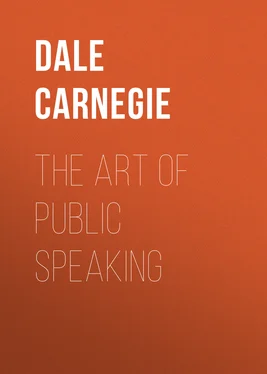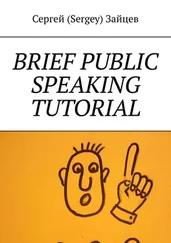—T.B. Macaulay.
ABRAHAM LINCOLN
We needed not that he should put on paper that he believed in slavery, who, with treason, with murder, with cruelty infernal, hovered around that majestic man to destroy his life. He was himself but the long sting with which slavery struck at liberty; and he carried the poison that belonged to slavery. As long as this nation lasts, it will never be forgotten that we have one martyred President—never! Never, while time lasts, while heaven lasts, while hell rocks and groans, will it be forgotten that slavery, by its minions, slew him, and in slaying him made manifest its whole nature and tendency.
But another thing for us to remember is that this blow was aimed at the life of the government and of the nation. Lincoln was slain; America was meant. The man was cast down; the government was smitten at. It was the President who was killed. It was national life, breathing freedom and meaning beneficence, that was sought. He, the man of Illinois, the private man, divested of robes and the insignia of authority, representing nothing but his personal self, might have been hated; but that would not have called forth the murderer's blow. It was because he stood in the place of government, representing government and a government that represented right and liberty, that he was singled out.
This, then, is a crime against universal government. It is not a blow at the foundations of our government, more than at the foundations of the English government, of the French government, of every compact and well-organized government. It was a crime against mankind. The whole world will repudiate and stigmatize it as a deed without a shade of redeeming light....
The blow, however, has signally failed. The cause is not stricken; it is strengthened. This nation has dissolved,—but in tears only. It stands, four-square, more solid, to-day, than any pyramid in Egypt. This people are neither wasted, nor daunted, nor disordered. Men hate slavery and love liberty with stronger hate and love to-day than ever before. The Government is not weakened, it is made stronger....
And now the martyr is moving in triumphal march, mightier than when alive. The nation rises up at every stage of his coming. Cities and states are his pall-bearers, and the cannon beats the hours with solemn progression. Dead—dead—dead—he yet speaketh! Is Washington dead? Is Hampden dead? Is David dead? Is any man dead that ever was fit to live? Disenthralled of flesh, and risen to the unobstructed sphere where passion never comes, he begins his illimitable work. His life now is grafted upon the Infinite, and will be fruitful as no earthly life can be. Pass on, thou that hast overcome! Your sorrows O people, are his peace! Your bells, and bands, and muffled drums sound triumph in his ear. Wail and weep here; God makes it echo joy and triumph there. Pass on, victor!
Four years ago, O Illinois, we took from your midst an untried man, and from among the people; we return him to you a mighty conqueror. Not thine any more, but the nation's; not ours, but the world's. Give him place, ye prairies! In the midst of this great Continent his dust shall rest, a sacred treasure to myriads who shall make pilgrimage to that shrine to kindle anew their zeal and patriotism. Ye winds, that move over the mighty places of the West, chant his requiem! Ye people, behold a martyr, whose blood, as so many inarticulate words, pleads for fidelity, for law, for liberty!—Henry Ward Beecher.
THE HISTORY OF LIBERTY
The event which we commemorate is all-important, not merely in our own annals, but in those of the world. The sententious English poet has declared that "the proper study of mankind is man," and of all inquiries of a temporal nature, the history of our fellow-beings is unquestionably among the most interesting. But not all the chapters of human history are alike important. The annals of our race have been filled up with incidents which concern not, or at least ought not to concern, the great company of mankind. History, as it has often been written, is the genealogy of princes, the field-book of conquerors; and the fortunes of our fellow-men have been treated only so far as they have been affected by the influence of the great masters and destroyers of our race. Such history is, I will not say a worthless study, for it is necessary for us to know the dark side as well as the bright side of our condition. But it is a melancholy study which fills the bosom of the philanthropist and the friend of liberty with sorrow.
But the history of liberty—the history of men struggling to be free—the history of men who have acquired and are exercising their freedom—the history of those great movements in the world, by which liberty has been established and perpetuated, forms a subject which we cannot contemplate too closely. This is the real history of man, of the human family, of rational immortal beings....
The trial of adversity was theirs; the trial of prosperity is ours. Let us meet it as men who know their duty and prize their blessings. Our position is the most enviable, the most responsible, which men can fill. If this generation does its duty, the cause of constitutional freedom is safe. If we fail—if we fail—not only do we defraud our children of the inheritance which we received from our fathers, but we blast the hopes of the friends of liberty throughout our continent, throughout Europe, throughout the world, to the end of time.
History is not without her examples of hard-fought fields, where the banner of liberty has floated triumphantly on the wildest storm of battle. She is without her examples of a people by whom the dear-bought treasure has been wisely employed and safely handed down. The eyes of the world are turned for that example to us....
Let us, then, as we assemble on the birthday of the nation, as we gather upon the green turf, once wet with precious blood—let us devote ourselves to the sacred cause of constitutional liberty! Let us abjure the interests and passions which divide the great family of American freemen! Let the rage of party spirit sleep to-day! Let us resolve that our children shall have cause to bless the memory of their fathers, as we have cause to bless the memory of ours!—Edward Everett.
CHAPTER VIII
CONCENTRATION IN DELIVERY
Table of Contents
Attention is the microscope of the mental eye. Its power may be high or low; its field of view narrow or broad. When high power is used attention is confined within very circumscribed limits, but its action is exceedingly intense and absorbing. It sees but few things, but these few are observed "through and through" ... Mental energy and activity, whether of perception or of thought, thus concentrated, act like the sun's rays concentrated by the burning glass. The object is illumined, heated, set on fire. Impressions are so deep that they can never be effaced. Attention of this sort is the prime condition of the most productive mental labor.
—Daniel Putnam, Psychology .
Try to rub the top of your head forward and backward at the same time that you are patting your chest. Unless your powers of coördination are well developed you will find it confusing, if not impossible. The brain needs special training before it can do two or more things efficiently at the same instant. It may seem like splitting a hair between its north and northwest corner, but some psychologists argue that no brain can think two distinct thoughts, absolutely simultaneously—that what seems to be simultaneous is really very rapid rotation from the first thought to the second and back again, just as in the above-cited experiment the attention must shift from one hand to the other until one or the other movement becomes partly or wholly automatic.
Whatever is the psychological truth of this contention it is undeniable that the mind measurably loses grip on one idea the moment the attention is projected decidedly ahead to a second or a third idea.
Читать дальше












